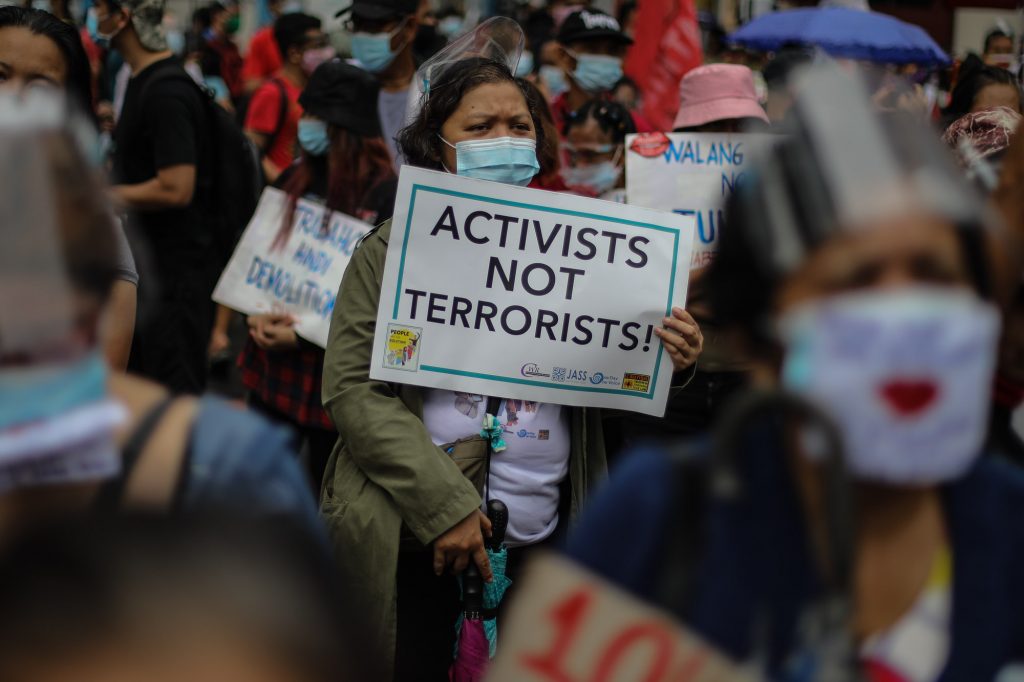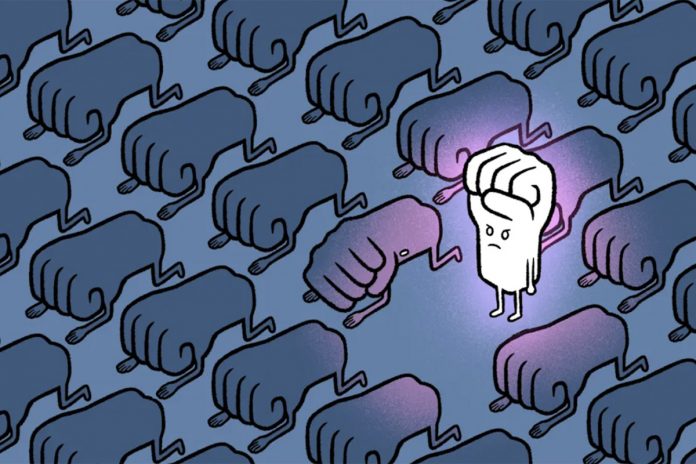An avatar dubbed “Tumindig” became viral recently with the implied message that one must stand up for what he or she believes.
The digital drawing posted online on July 17 by cartoonist “Tarantadong Kalbo” shows a fist standing in the middle of other fists that are bowed in apparent submission.
The avatar was later associated with activists who supposedly dared to stand up, and stand out, from the crowd.
The word activism comes from the Latin “actus,” which means “a doing, a driving force, or an impulse.”
Activism consists of efforts to promote or participate in social, political, economic, legal, or environmental reforms with the desire to make changes in society toward a perceived greater good.
Any controversial social issue you can think of involves activism on both sides.
Activism is carried in several forms and varying levels of collective action from petition signing, letter writing, consultations, negotiations, pickets, and street protests.
The University of the Philippines has always been associated with student activism. Students in this state university have always become a potent force in social organizations and social change in the country.
When I entered the university in 1987, I was warned not to join demonstrations and be associated with activists. I was a nerd during my first two years, spending time in the library in the classroom.
I was on my third year when I became part of the student movement as photographer of the university paper, the Philippine Collegian, and later as a member of the organization Sandigan Para sa Mag-aaral at Sambayanan (SAMASA).
SAMASA started as an alliance of student organizations that campaigned for the return of student institutions, such as the student councils. Since 1981, SAMASA won landslide victories during student elections.
It was one of the major student political parties during my days in the university in the 1980s. It was established when student movements for democratic rights were at its peak.
Student activism taught us the vision of service to the people. The campus moulded us to fight for causes we believe in, trained us for the skills we need to communicate, and rally us to effect changes in society.
One of SAMASA’s election campaign posters in the early 1990s featured a photo I took with the phrase “May panahong magduda’t magtanong, ngayo’y panahon ng pagharap at pagsulong,” which was lifted from a popular protest song.

SAMASA was never perfect, but it dared to confront its own weaknesses to compose new songs for imperfect realities.
“Does activism still matter?” asked SAMASA veteran activists in a recent webinar to mark its 40th anniversary.
SAMASA stalwart, lawyer Raffy Aquino, summarized the answer into four “elements” for activism to matter: constancy (activism cannot be occasional alliances); change (activism is progressive, always looking forward); society (both its object of change and its site; and collective action (there are no lone-ranger activists).
There is a fifth element of activism that runs through these four: thought.
Activists have to be both militant and expert, committed and competent, and thus, must be thinking activists.
Thoughtful activism demands that we learn and unlearn, read before we write, listen before we speak. One needs to see the world from different perspectives, not to be complacent to submit to the status quo, and not to be afraid to be critical.
Let us celebrate activism.
Atty. Dennis R. Gorecho heads the seafarers’ division of the Sapalo Velez Bundang Bulilan law offices. For comments, email [email protected], or call 09175025808 or 09088665786









